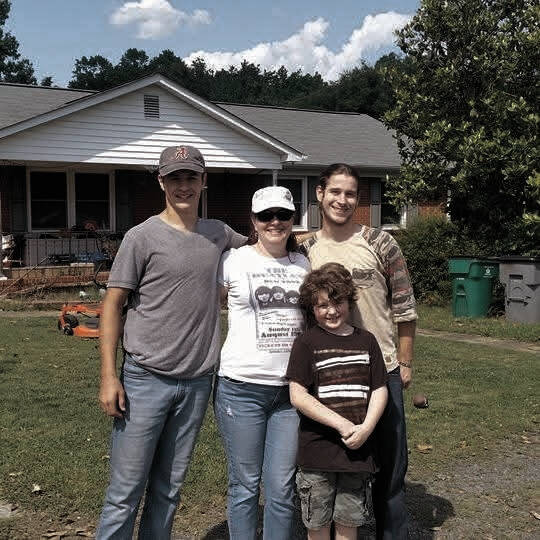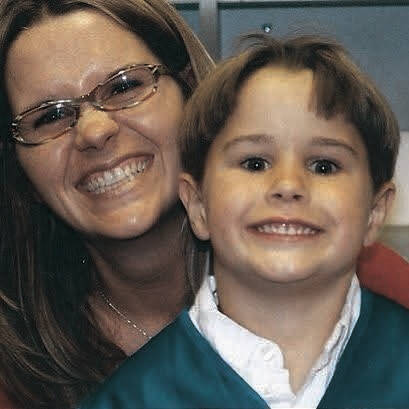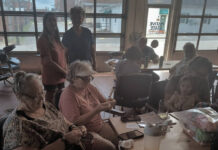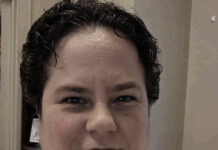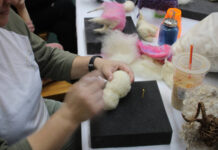May is the month dedicated to shining a spotlight on mental health struggles nationally. Bringing mental health a little closer to home, I recently discussed mental health issues with Heather Edwards, owner of Studio 256, and Toni Rorie, owner of Spin Art by Toni. Rorie is also a former long-time Anson County magistrate and continues to work in law enforcement.
Both women are no stranger to the dangers of untreated mental health issues, as well as to the stigma so many endure when trying to discuss mental health with others. Listening to them, it became apparent that to truly do their stories justice, I would need to do a two-part series.
In Heather’s case, her son developed mental health issues because of the abusive marriage she found herself in. Witnessing entirely too much at a very tender age, one of Edwards’ sons now struggles with bipolar disorder.
When enough became enough, Edwards fled the family home, finding refuge briefly in a women’s shelter. Her abusive ex-husband had a reputable job with a Sheriff’s Office.
Edwards points out, “I had a free ride to go to law school. I’m not a dumb person. I ended up getting pregnant and life happens to us all.” She adds, “I don’t think domestic violence is talked about like it should be. I don’t think mental health is talked about like it should be.”
At the age of four, Heather’s son was continuously getting kicked out of day-care centers, often within hours on the first day. Edwards describes taking her son to the grocery store and standing there helpless, with a toddler in her buggy, as her eldest wiped whole shelves clean of their products in a fit of rage.
The moment emblazoned in her mind, Edwards struggles to keep tears at bay as she recounts, “Everyone just backed away. Here I was standing there begging for help and everyone around me just backing away. It was very much this is not my problem — can’t you control your child lady?”
Edwards went on to recall several memories from her son’s childhood, many of them ending the same — with her son throwing a temper tantrum and blaming her for his anger.
Ultimately, Edwards ex-husband dropped her son off at another daycare. Edwards said her son was dropped off without any explanation to the day care workers about his issues, and sure enough, not long after Edwards received a call to come pick up her child. Once there, the worker told Edwards she needed to get her son in a quality inclusive daycare. She also told Edwards she could get a grant from the state to help pay the costs.
A quality inclusive daycare specializes in children with developmental needs.
“It took 75 phone calls for me to finally hear those words. Can you imagine? 75 phone calls to resource centers, medical clinics, etc., all to have her tell me how I could get my son help?”
Edwards took advantage of the suggestion, found a quality inclusive daycare and a grant from the state to help pay for it, to boot.
“It took until my son was the age of 13 for it come out in the courts that he had a mental illness, that my son was bipolar,” says Edwards, who eventually lost custody of her son. “I was told I lost custody because I was too emotional in court. How could I be anything but emotional? I had gotten out of the abusive situation, but my son was still in it.”
Bipolar Disorder is a mental health condition that causes extreme mood swings. These mood shifts can include emotional highs, known as mania or hypomania, and lows, known as depression.
Too often, Edwards says we strive too hard to appear perfect, even to our own detriment.
She adds, “I always look for that one perfect place in my house without all the clutter to take a picture. Social media has made us so hyper focused on obtaining perfection, or the appearance of it. That creates its own kind of mental illness.”
She knows better than most, as Edwards says that for years, she posted the same photo of herself and her son.
“In the picture we are standing side by side and I am smiling so big, and I look so happy. But it is all a lie. I look at that picture and I know my big, happy smile is forced.”
These days Edwards has learned to live each day focusing on her needs.
“Going to court, fighting so hard for my son- when I turned 40, I decided to start focusing on Heather.”
Edwards’ youngest son is graduating from high school this year and she is looking forward to what having an empty nest might look like for her.
“There are so many things I’ve wanted to do, but my therapist says why not just focus on being me. Not me the mom or business owner- just me Heather.”
These days, Edwards son doesn’t talk to her much. While the rejection she feels from her son tears her apart, Edwards says she has come to grips with his mental health issues and the role his formative years may have played in his mental development.
Edwards says, “Someday when he is ready.”
It was important for Edwards to share her mental health journey with me because she says, “People don’t understand. Unless you have lived it, you can’t understand. We have no idea when we interact with people who are struggling. Your taking the time to smile and hold the door open for someone- just taking a moment to really see them- can mean the difference in whether that person goes home and kills themselves. I mean, you never know what is going on in someone’s head or just how close they are to a permanent decision.”
She encourages, “Just be kind. No matter what you do in life, just take a moment to be kind. We are all in this together.”
Studio 256 has come to double as a “therapy” room, complete with two couches to sit and pour your heart out on. Edwards mother, Yvonne, says, “That’s why she has this place. It’s a safe place for people to come and just be or talk.”

